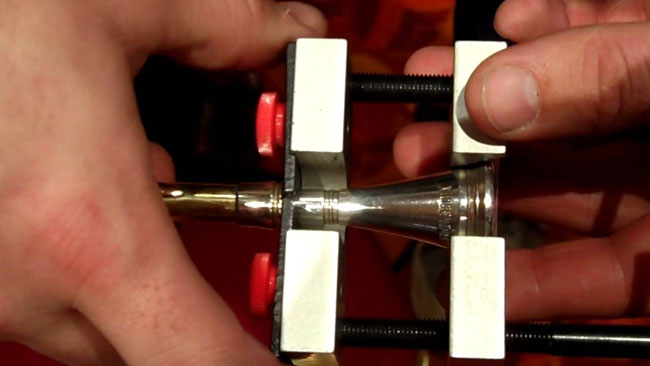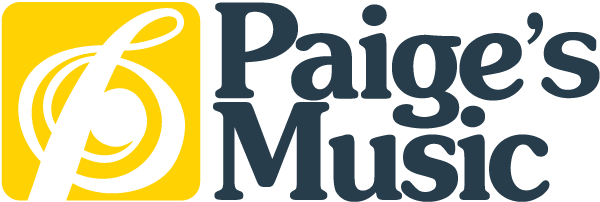10 Tips From Our Repair Shop II
We posted these tips once before on this blog, but they’re still relevant so we’re posting them again!

- “An ounce of prevention is worth a pound of cure”. It is best to have your instrument serviced regularly in order to keep it in good playing condition. We recommend at least once a year but twice is better. Especially for woodwind instruments. With all their intricate key work and pads/corks that wear out from just regular use they need a little more TLC.
- The hole in the bottom of a brass instrument piston IS NOT for a screwdriver or a pencil! It is a vent hole and sticking anything in there is liable to damage the port in the piston and cause a more expensive repair.
- We pull stuck mouthpieces for FREE. However, we do charge to re-install mouthpipes. When in doubt…..let us do it. (Pictured above)
- When wiping off your flute or piccolo to keep it nice and shiny be careful to not rub the edges of the pads. The pads are covered with a thin membrane which tears very easily leading to an earlier than normal complete repadding.
- Bari saxes do not bounce! Not really a repair tip but more along our amazement of the condition of the bari saxes that come in for repair.
- When an instrument gets wet from one of Mother Natures surprises just carefully wipe it off and then let it air dry completely before putting it back in the case. Putting it back in the case wet can lead to mold/mildew and major problems
- Never use alcohol to clean an instrument. It can damage the finish on string, brass and woodwind instruments.
- One UN-repaired solder joint…… leads to another.
- Extend the life of your bow hair by releasing the tension on the hair after rehearsals and concerts.
- Completely filled out repair tags are our umbilical cord to the customer. Without a telephone number we can not call. Without an address we can not send a postcard. If specific problems are not notated we may not find them.
